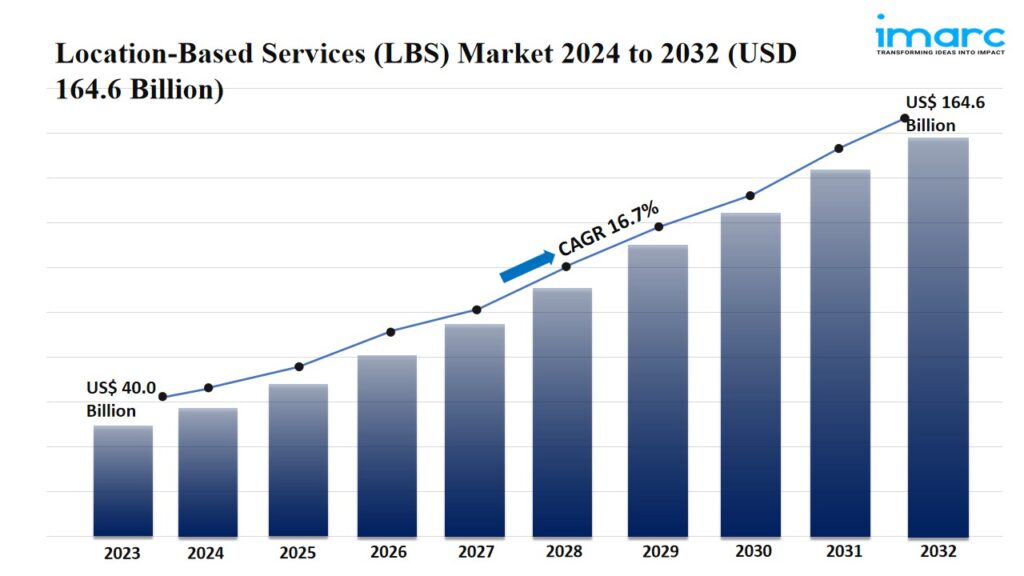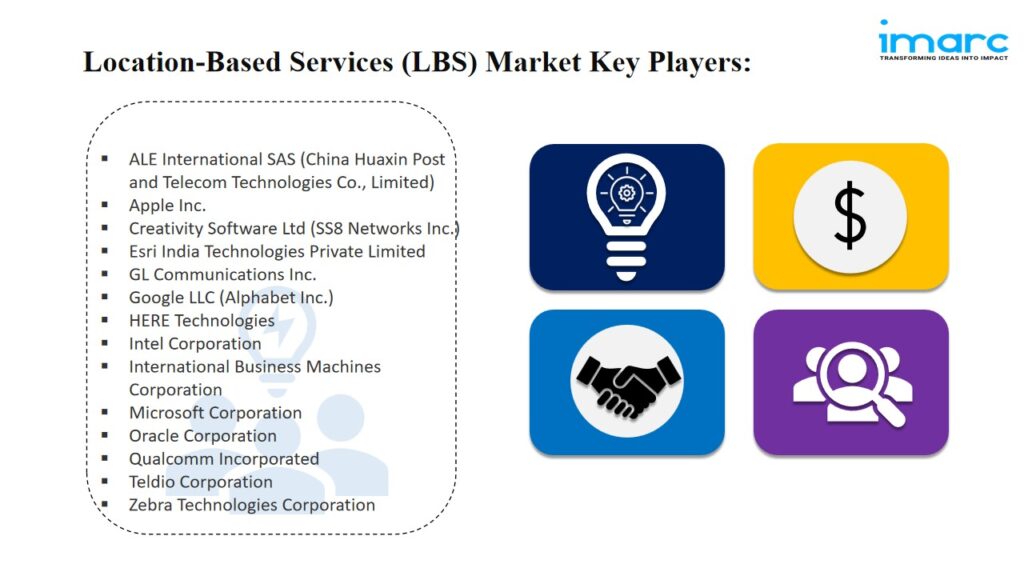
IMARC Group’s report titled ” Location-Based Services (LBS) Market Report by Component (Hardware, Software, Services), Technology (GPS, Assisted GPS (A-GPS), Enhanced GPS (E-GPS), Enhanced Observed Time Difference (E-OTD), Observed Time Difference, Cell ID, Wi-Fi, and Others), Location Type (Indoor, Outdoor), Application (Emergency Services, Tracking Services, Navigation Services, Social Media Services, Information Services, Gaming and Entertainment Services, Advertising and Promotion Services, and Others), End User (Banking, Financial Services, and Insurance (BFSI), IT and Telecom, Retail, Transportation and Logistics, Government, Healthcare and Life Services, Manufacturing, and Others), and Region 2024-2032″. The global location-based services market size reached US$ 40.0 Billion in 2023. Looking forward, IMARC Group expects the market to reach US$ 164.6 Billion by 2032, exhibiting a growth rate (CAGR) of 16.7% during 2024-2032.

Grab a sample PDF of this report: https://www.imarcgroup.com/location-based-services-market/requestsample
Factors Affecting the Growth of the Location-Based Services (LBS) Industry:
The continuous evolution of global positioning systems (GPS), mobile computing, and wireless communication technologies is impelling the growth of the market. Enhanced accuracy, reduced size, and increased efficiency of location-sensing technologies are enabling the integration of location-based services (LBS) into various devices and applications. This technological progression facilitates real-time data transmission, improves user experiences, and the development of innovative services like geo-targeted advertising, emergency assistance, and location-based social networking. As these technologies advance, they expand the potential use cases for LBS, attracting more businesses and users to rely on geospatial data.
The rise in smartphone adoption and the widespread availability of high-speed mobile internet are pivotal in driving the demand for LBS. Smartphones, equipped with built-in GPS and other sensors, serve as ideal platforms for LBS applications, offering users a myriad of services ranging from navigation and traffic management to location-specific payment portals. The integration of LBS with mobile applications enhances user engagement by providing personalized, context-aware information, which, in turn, benefits businesses by enabling targeted marketing and improved customer insights. This rise in mobile connectivity and the convenience offered by LBS-enabled apps are leading to heightened expectations for personalized and location-relevant services.
Businesses are increasingly leveraging LBS to offer personalized marketing and improved customer engagement. By utilizing geolocation data, companies can deliver targeted advertising, special offers, and location-specific content to consumers, uplifting the relevance and effectiveness of their marketing procedures. This personalized approach not only improves customer satisfaction and loyalty but also increases the efficiency of marketing spending. Furthermore, LBS facilitates enhanced consumer experiences by enabling services, such as indoor mapping, location-based gaming, and augmented reality (AR), which engage users and encourage more frequent interaction with the service providers.
Leading Companies Operating in the Global Location-Based Services LBS Industry:
